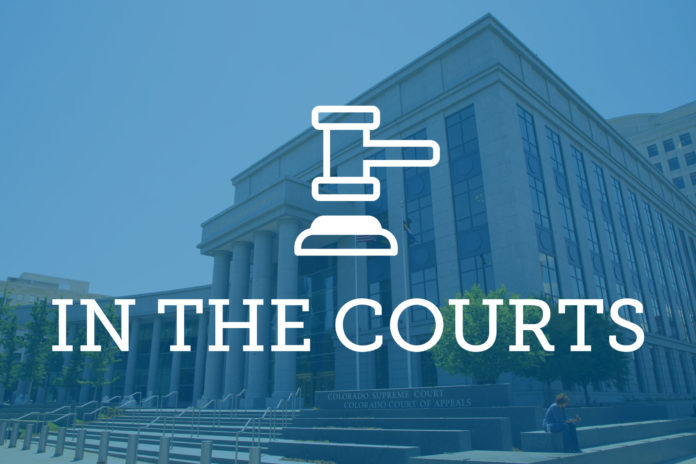
Editor’s Note: Law Week Colorado edits court opinion summaries for style and, when necessary, length.
Charles Overton v. Clarence Chess
Charles and Janet Overton obtained a treasurer’s deed to property in Fremont County that was previously owned by Clarence Chess. The Fremont County treasurer conveyed the deed to the Overtons after Chess didn’t pay real estate taxes. Chess challenged the deed, claiming he wasn’t given statutorily required notice before it was issued.
A bench trial judge ordered the return of property to Chess subject to him reimbursing the Overtons for certain expenses, around $155,000, and interest in line with Colorado law. The judge declined to offset the value of reimbursements based on a utility easement that the Overtons conveyed to another party, which Chess requested.
Both the Overtons and Chess filed post-trial motions. The Overtons asked the court to impose interest on the reimbursement value based on the dates that each expense occurred and Chess asked the court to reconsider its decision to not credit the utility easement value.
The court didn’t rule on the Overtons’ motion and denied Chess’ motion. Chess then requested to deposit funds with the court registry in exchange for possession of the property for the reimbursement value the court determined, plus interest starting from the date the court calculated the amount. Over objection from the Overtons, the court granted the motion and Chess deposited the funds.
On appeal, the Overtons argue that Colorado Revised Statute 39-12-101 requires prejudgment interest, including interest on reimbursement amounts, starting from the date of the expenses.
The Colorado Court of Appeals agreed for the most part. It found that by granting Chess’ motion to deposit funds, the lower court entered a final judgment and that the plain language of C.R.S. 39-12-101 “authorizes at least some amount of prejudgment interest on all categories of expenditures listed in the statute because the reimbursement amount (including interest) must be paid before a court may enter a judgment or decree in the case.” Also based on the plain language, the Court of Appeals found interest to reimburse for the value of improvements starts the day that the judge or jury calculates the value’s amount.
The statute doesn’t offer a plain text answer for calculating interest on the other categories of reimbursements, the Court of Appeals found, which include “sums” paid for the tax lien, “costs” related to the treasurer’s deed and “all taxes and assessments paid” after a lien is issued. Unlike improvements, the amount for all these reimbursements is liquidated and can be calculated before a court fact finder decides them.
The Colorado Court of Appeals was left to decide if interest accrues from the date each of the expenses in the other categories was paid or from the date that the court calculates the reimbursement amount. Finding this part of the statute ambiguous, the Court of Appeals looked at interpretive aids to answer the question.
Looking at cases from the 1910s and 1930s based on an earlier version of the statute, the Colorado Court of Appeals understood that earlier versions were written to protect claimants under tax deeds. “Assessing interest from the date each expenditure is made serves the purpose of protecting treasurer’s deed holders like Overton,” wrote the Colorado Court of Appeals in its unanimous opinion.
A closely related statute, C.R.S. 39-12-103(3), supported the same conclusion, the Colorado Court of Appeals found. The statute requires a tax lien buyer to pay interests of costs starting from the date of sale. “It would be anomalous to disallow that same interest to a lien purchaser in the next step of the statutory process,” explained the court.
Finding that C.R.S. 39-12-101 requires interest from reimbursement starting from the date an expense other than improvements was incurred, the Colorado Court of Appeals found the lower court erred in allowing interest to start from the date it calculated the reimbursement total.
Chess cross appealed the lower court’s decision to not credit the conveyed easement to his reimbursement total. The Colorado Court of Appeals agreed. The lower court dismissed Chess’ motion based on a lack of evidence about the value of the easement. However, a letter to the Overtons requesting the easement provided an estimated value and some basis to calculate a potential offset amount. By not considering this, the lower court clearly erred in dismissing Chess’ motion, the Colorado Court of Appeals found. The court remanded the issue for further fact finding and consideration.
The Colorado Court of Appeals affirmed the judgment to pay interest on the value of improvements, but reversed the order for all other expense categories. It also reversed the judgment to deny an offset value of the conveyed easement and remanded the case for fact finding about the easement’s value and to find the dates that other expense categories were incurred.

